Florida is a great place to start and grow a small business. With its warm climate, diverse economy, and thriving entrepreneurial culture, businesses of all sizes have found success in the Sunshine State.
For small businesses in Florida, having a strong relationship with a local bank is essential. A good business account partner can help your business secure the financing it needs to grow and thrive. They can also provide valuable insights into how to best manage your finances.
To help you find the right bank for your small business, we’ve compiled a list of the best banks in Florida. We’ve considered factors like account fees, loan options, and customer service to create this comprehensive guide.
So whether you’re looking for a traditional big bank or a smaller community bank, we’ve got you covered. Here are the best banks for small businesses in Florida:
- Bonsai's business account
- Fifth Third Bank
- Vystar Credit Union
- Wells Fargo
- Chase
- Bank Of America
- Synovus Bank
Note: If you want to try the best business account in Florida, try Bonsai's business account. No hidden fees, no credit checks, no monthly minimum balance requirements--no hassle. Our business account is easy to set up and allows you to create as many sub-accounts to organize your finances. Open a new account today. Try Bluevine for all of your freelance banking needs!
Best Online Business Checking Account: Bonsai's business account
As your business grows, you’ll need to start thinking about how to manage your finances in a more organized and efficient way, while saving money and time. One of the best ways to do this is by opening an online business bank account.
An online business bank account allows you to:
- Access your account from anywhere in the world
- Save time and money on banking fees
- Enjoy greater flexibility and control over your account
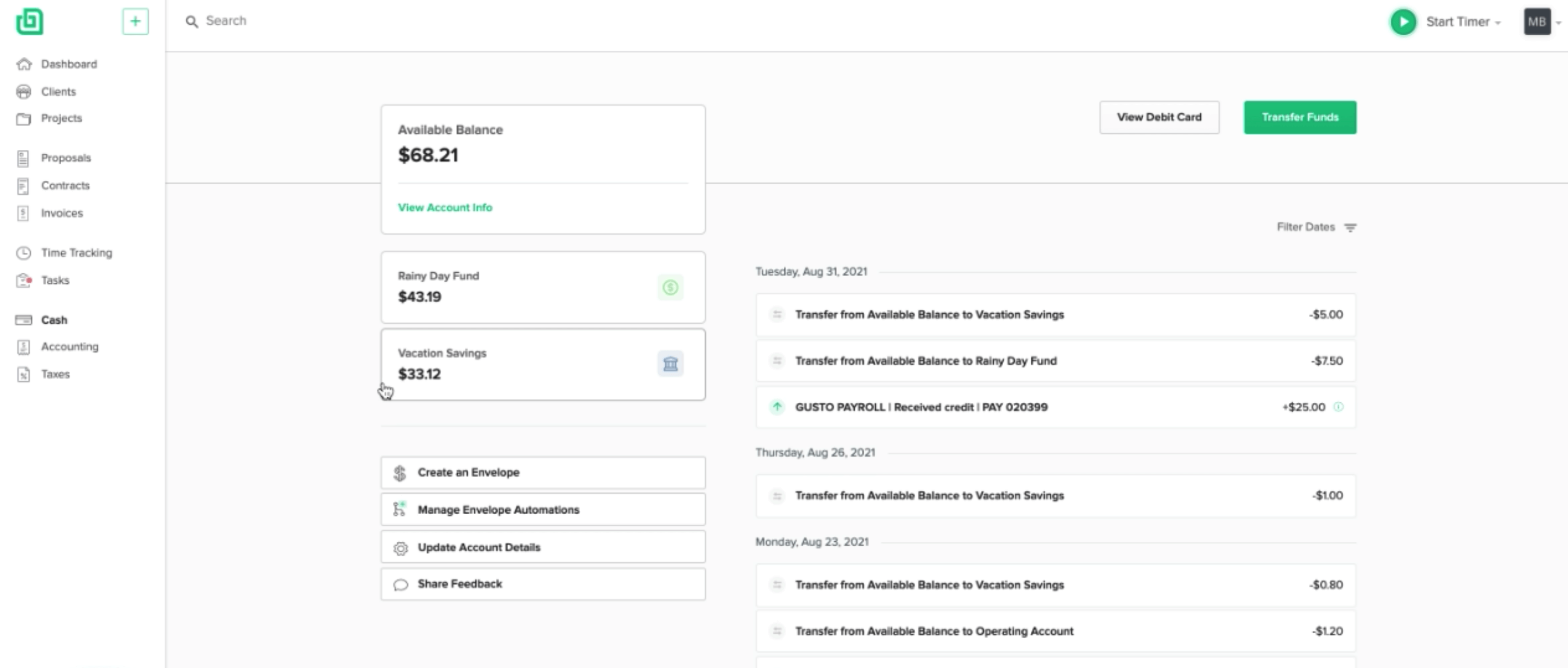
That said, Bonsai's business account is an easy-to-use business checking account that allows you to manage your business finances, make payments, and keep track of expenses. You can open an account within minutes, and you don’t have to provide tons of paperwork.
Bonsai's business account stands out from other online-only banks because it offers:
- A free and easy-to-use platform
- No monthly fees or hidden costs
- No minimum monthly balance requirements
- No minimum deposit requirements
- An "Envelopes" feature that allows you to make business sub-accounts to save more efficiently, among others
You can sign up for an account today.

Fifth Third Bank
Fifth Third Bank is one of the oldest banks in America, founded in 1858. It's available in eleven states, with around 1,100 branches. While it's a large bank, Fifth Third has a strong presence in smaller towns and cities.
The bank offers a free business checking account that's only accessible to customers in Florida, Georgia, and certain parts of Kentucky and Indiana. The account doesn't charge a monthly fee and there's no minimum opening deposit requirement or minimum balance requirement. For small business owners in Florida, this account provides a great way to avoid fees and maintain easy access to your money.
Vystar Credit Union
If you’re looking for a smaller bank or credit union, Vystar Credit Union is a great option. Headquartered in Jacksonville, Florida, Vystar has been serving businesses in the state for over 60 years. They offer a wide variety of products and services, as well as a commitment to outstanding customer service.
The credit union has a free business checking account that pays interest. There is no minimum deposit required to open the account, and there is no minimum balance requirement. As an account holder, you also receive free checks, a debit or ATM card, and the ability to get paid up to two days ahead of schedule with direct deposit.
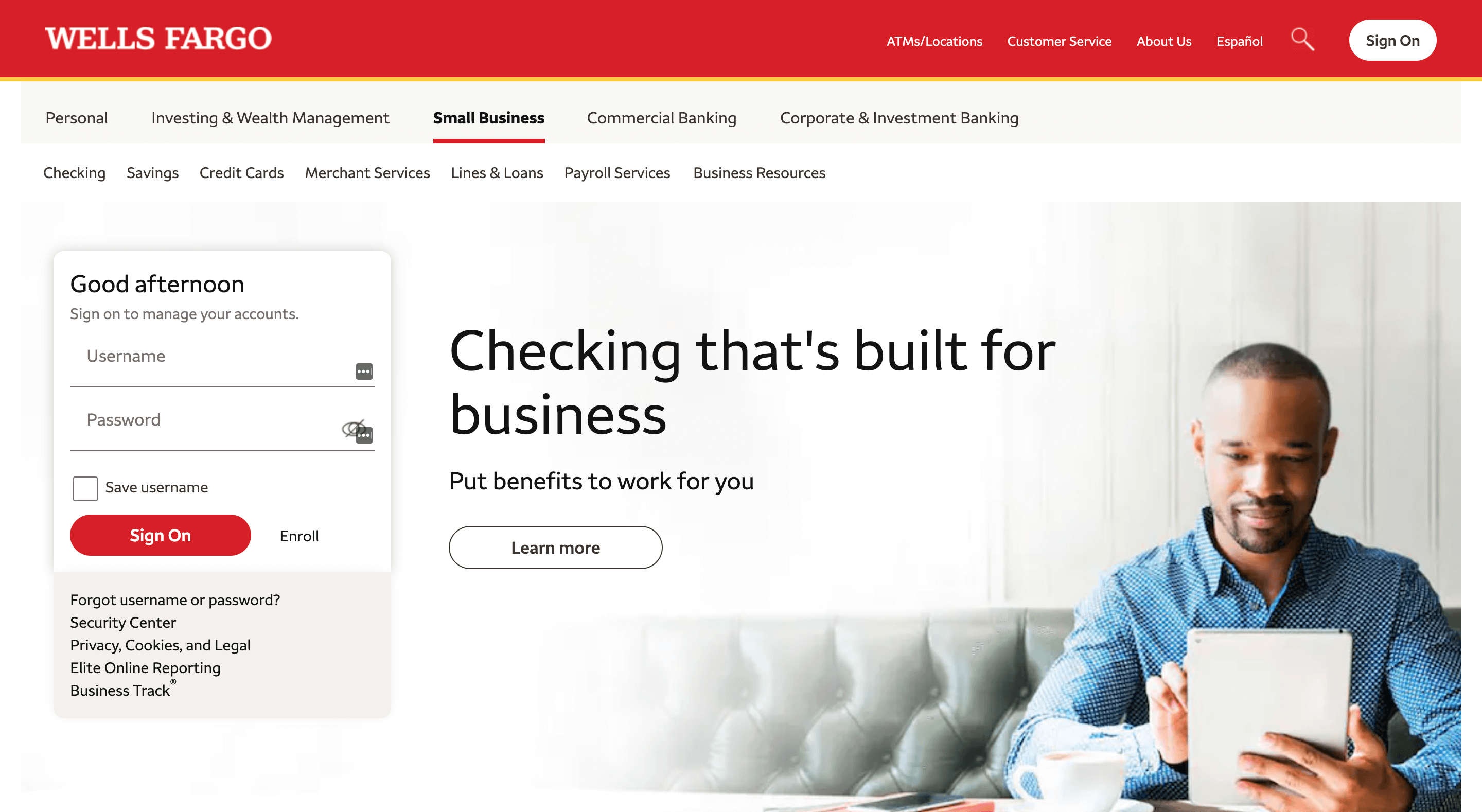
Wells Fargo
Wells Fargo is one of the oldest and most well-known banks in the country. They’re a good option for small businesses, particularly if you have multiple locations or travel frequently. That’s because they have more than 13,000 ATMs worldwide and nearly 500 branches in Florida alone.
Wells Fargo has three business checking account options, which includes their Initiate, Navigate, and Optimize Business Checking accounts. The Initiate checking account charges $10 every month, which you can waive if you maintain an average ledger balance of $1,000 and a daily account balance of $500.
You’ll find Wells Fargo branches in most major cities in Florida, including Tampa, Orlando, and Miami.
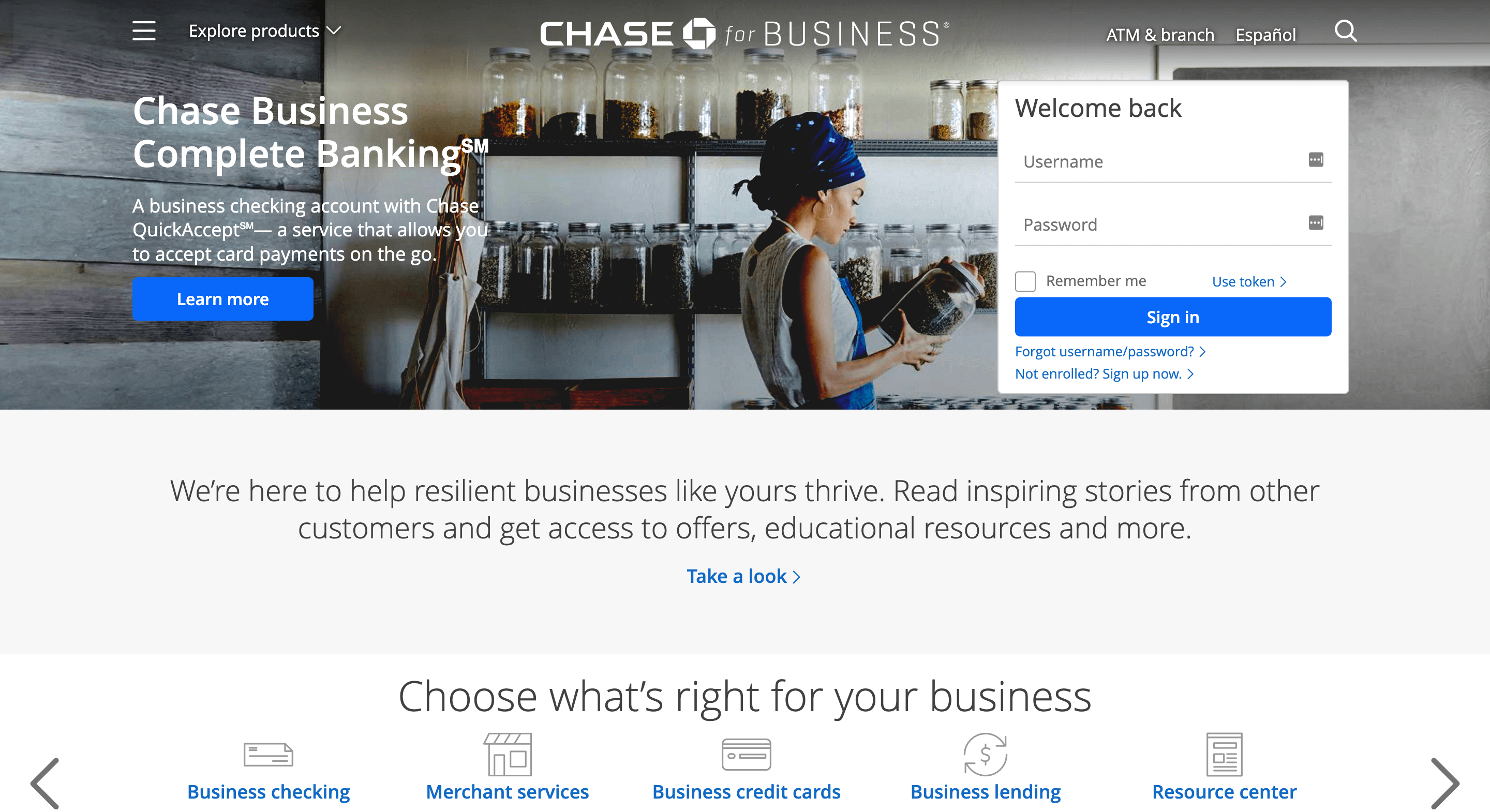
Chase Bank
Chase is another large national bank that’s a good option for small businesses in Florida. They offer a full range of business account services, from checking and savings accounts to loans and credit cards.
For small businesses looking for a basic business checking account, Chase offers the Chase Business Complete Business Account account. This account requires no minimum deposit to open and has a $15 monthly service fee. You can avoid the $15 monthly fee by maintaining a $2,000 minimum daily balance or making purchases of at least $2,000 using the Chase Ink Business Credit Card.
The checking account allows you to deposit up to $5,000 each month at no cost. If you deposit more than $5,000 in one month, though, you must pay standard money transfer costs above that amount.
Chase has over 400 branches in Florida, so you’re likely to find one near you no matter where you are in the state.
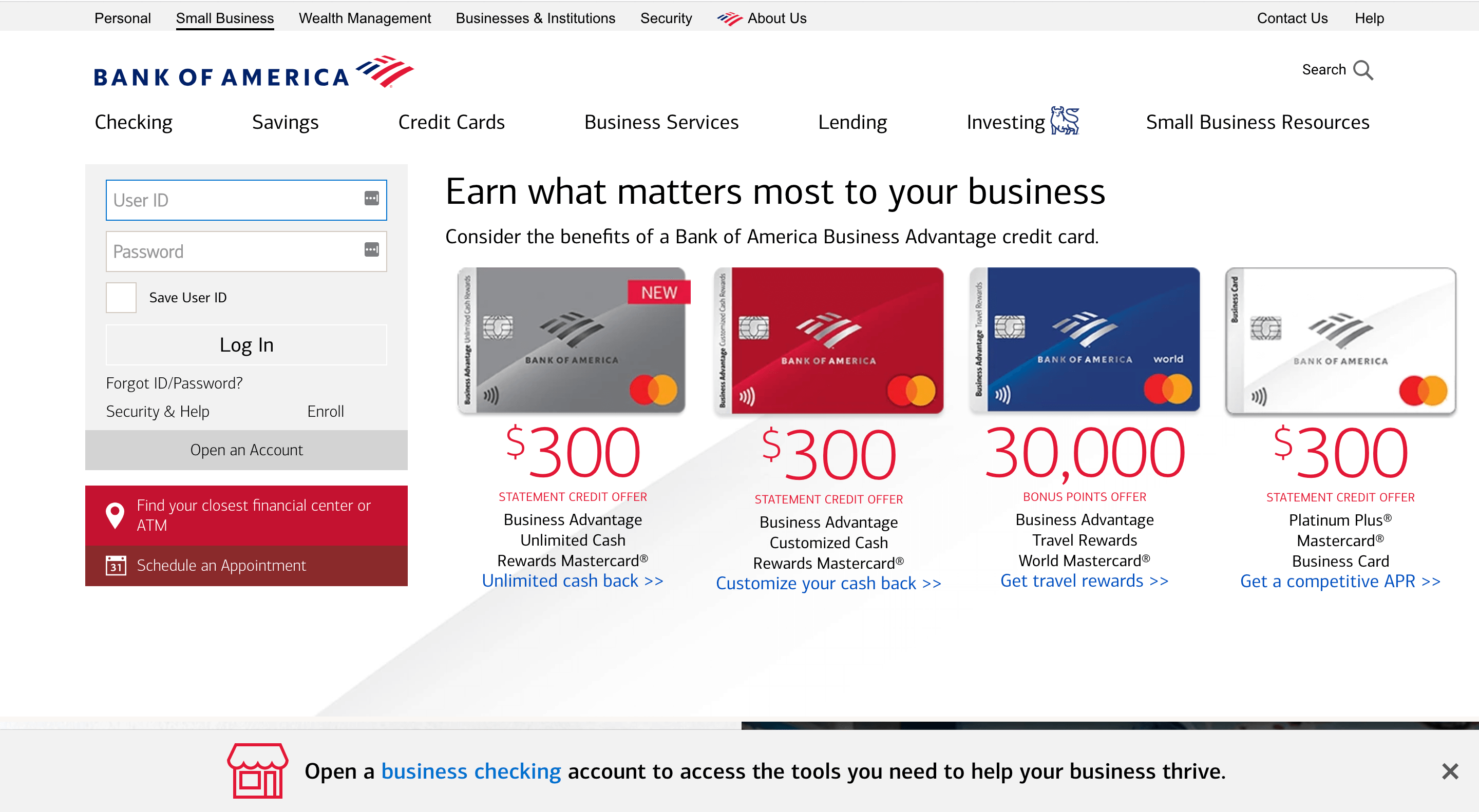
Bank of America
Bank of America is another one of the top banks for small business in Florida. They offer a comprehensive suite of products and services that can meet the needs of businesses of all sizes. In addition, they have a wide network of branches and ATMs, which can be helpful if you have employees who travel frequently or need to make deposits in person.
Bank of America has two Small Business Banking Accounts, each with its own set of benefits. Their entry-level account is the Business Advantage Fundamentals Business Account. This account requires a $100 minimum deposit to open and has a monthly maintenance fee of $16, which can be waived if you maintain a $5,000 combined average monthly balance.
If you’re looking for a bit more from your account, the Business Advantage Relationship Business Account offers up to $20,000 free cash deposits and up to 500 fee-free non-electronic transactions. There is a $29.95 monthly maintenance fee which can be waived if you maintain a combined average monthly balance of $15,000 or more.
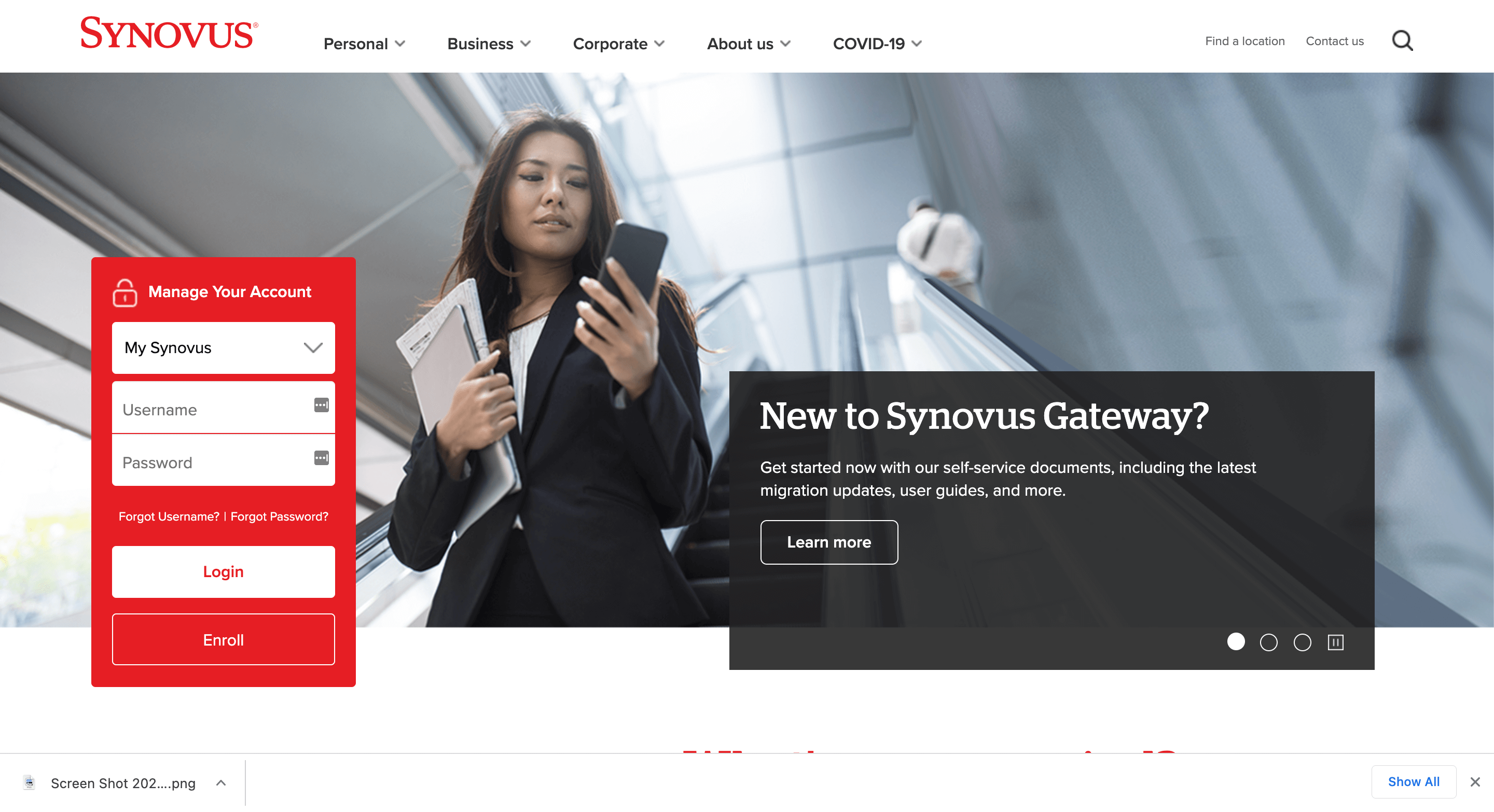
Synovus Bank
Synovus is a regional bank that has been serving businesses in the Southeast for over 125 years. Their entry-level account is the Pro Business Checking account which allows you to make fee-free deposits of up to $10,000 and has a $10 monthly maintenance fee. The fee can be waived if you maintain an average monthly balance of $1,000 or more.
If you're a sole proprietor or run a nonprofit, Synovus Business Interest Checking could be worth looking into. It allows you to get up to $10,000 in deposits and 200 debit transactions for free, just like with the Pro Business Checking account. But there's another advantage to having this account: you'll earn interest on your entire balance.
Synovus also allows you to make automatic bill payments and access your account from anywhere using the interactive Synovus business account app. In addition, the bank has a strong commitment to customer service, which can be helpful if you have questions or need assistance with your account.
Florida Regional and Local Banks: Advantages and Disadvantages
There are both benefits and drawbacks of using local banks or credit unions for your business checking account.
Some advantages include:
Personalized service
Local banks may be more understanding of your particular business needs. This often translates to more individualized service.
You may already have a relationship with the bank
If you’ve been banking with a local institution for personal accounts, they may be more likely to work with you and offer favorable terms when you open business account accounts. This is especially true if you maintain a good relationship and keep your personal accounts in good standing.
They may be more flexible with lending requirements
Local banks may be more likely to take a chance on small businesses and entrepreneurs. They may also be more flexible with their lending requirements, which can be helpful if you’re just starting out or if your business is growing quickly.
They may offer community-oriented products and services
Local banks are typically more invested in the communities they serve. This may mean that they offer products and services that are specifically designed for small businesses and entrepreneurs. For example, some local banks offer business incubation programs or mentorship opportunities.
Some disadvantages of using a local bank include:
They may have less experience with your type of business
Local banks may not have as much experience working with businesses in your particular industry. This can be a problem if you need specialized services or advice.
Local banks may have fewer products and services
When compared to larger, national banks, local banks may have a more limited selection of products and services.
Local banks may have higher fees
Local banks may charge higher fees for some products and services, like wire transfers or merchant services. This is because they often have to outsource these services to other institutions.
You may not have access to ATM networks
If you use a local bank, you may only have access to a limited number of ATMs. This can be inconvenient if you travel frequently or if you have to make cash withdrawals often.
Overall, there are both advantages and disadvantages of using a local bank for your business checking account. It’s important to weigh these factors carefully before deciding whether a local or national bank is right for your business
How to find the right business checking account for your business
One of the most important aspects of keeping your business running smoothly is having the right checking account. The following are things you should look out for when choosing a business bank account:
Weekly offers
A business checking account with an introductory bonus offer can give your finances a little boost when you open the account. Many banks will offer cash bonuses ranging from $100 to $500 when you open a new business checking account and meet certain requirements.
To qualify for the bonus, you’ll likely need to maintain a minimum balance, make direct deposits, or use a certain number of bill pay transactions. Review the requirements carefully so you can take advantage of the offer.
Transaction limits
When you’re running a business, it’s important to have a checking account that can handle your transaction volume. Otherwise, you could end up paying fees for exceeding the limit.
Most small businesses will be able to get by with a checking account that has daily transaction limits of 20 to 30 transactions. If your business requires more than that, you may need to look for a checking account that doesn’t have transaction limits or has higher limits.
You’ll also want to check the number of checks you’re allowed to write per month. Most business checking accounts place a limit of 250 to 300 checks per month. If you need more than that, you may need to look for a special business account or negotiate with your bank.
ATM access
For most small businesses, having a local bank branch is not a necessity. However, it can be helpful to have access to branches and ATMs for deposits, withdrawals, and other banking needs.
If you don’t need regular access to branches or ATMs, you may want to consider an online-only business checking account. As we’ve mentioned earlier, these accounts often have fewer fees and higher interest rates.
Be sure to check the ATM access of any account you’re considering. Many banks have extensive ATM networks, while others only have a few locations. If you travel frequently or have customers in different parts of the country, you’ll want an account with good ATM access.
Ease of integration
Your business checking account should easily integrate with your company’s accounting software. This will save you time and energy when it comes to tracking expenses and preparing tax filings.
Customer service
When you have a question about your account, you should be able to easily get in touch with a customer service representative who can help you.
Look for a bank that offers 24/seven customer support. This way, you can reach someone anytime if you have a question or concern. You should also be able to contact customer service by phone, email, or chat.
Fees
You’ll want to avoid any hidden fees with your business checking account. Make sure to read the fine print so you know what you’re being charged for.
Some of the most common fees include monthly maintenance fees, ATM fees, and overdraft fees. You may also be charged for making deposits or transferring money to other accounts.
Some of these monthly fees can be waived if you meet certain requirements.
For example, you may be able to avoid a monthly service fee by maintaining a minimum balance in your account or by making a certain number of transactions each month. Other banks may charge fees for common transactions, like using an out-of-network ATM or making a wire transfer.
That said, be sure to carefully review a bank’s fee schedule before opening a business checking account.
Mobile and Online Banking
In today’s world, it’s important to have a checking account that offers both online and mobile banking. This allows you to manage your account from anywhere and keeps you connected to your finances even when you’re on the go.
When considering online and mobile business account, look for features like the ability to check your account balance, transfer funds, pay bills, and deposit checks. You should also make sure the bank’s website is secure and that the mobile app is user-friendly.
Minimum balance requirements
Some banks require you to maintain a minimum balance in your business checking account in order to avoid service fees. This minimum balance can range from $100 to $25,000, depending on the bank.
If you don’t think you’ll be able to meet the minimum balance requirement, look for a checking account that doesn’t have one. Otherwise, you could end up paying costly service fees.
Interest-bearing accounts
While most business checking accounts don’t earn interest, there are some that do. If you think you’ll keep a large balance in your account, look for an interest-bearing account to earn some extra money on your deposited funds.
Other special features
When choosing a business checking account, you may also want to look for special features that meet the needs of your business. For example, some banks offer free check processing or discounted prices on business checks and other banking products.
Other banks offer special services like merchant services, which allow you to accept credit card payments, or business loans. If you’re interested in these types of features, be sure to ask about them when you’re comparing different business checking accounts.






